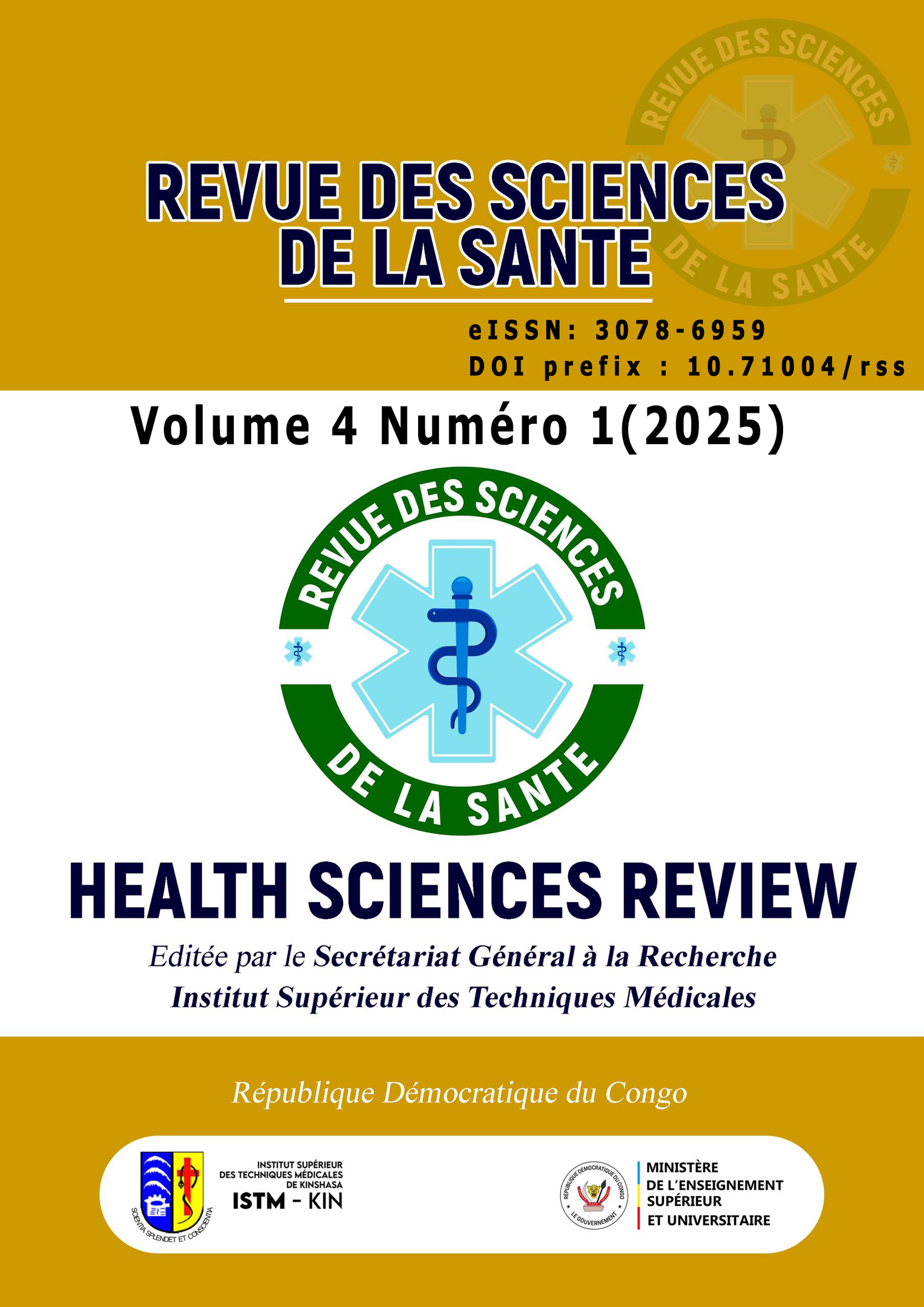Abstract
In healthcare facilities across the Democratic Republic of Congo, particularly in the Bandundu health zone, quality of care depends not just on technical skills but also on how professionals behave and interact, their "soft skills." This study explores how hospital managers and nurses view these behavioral competencies and what impact they have on day-to-day healthcare management. A qualitative, phenomenological approach was used, with data collected through semi-structured interviews involving 18 participants (9 nurses and 9 hospital managers), selected through purposive sampling. Thematic analysis of the conversations brought to light five key areas: how behavioral skills are defined, what influences their expression, their effects on teamwork and patient relationships, the challenges encountered, and suggestions for strengthening these competencies. Participants widely agreed that behavioral skills are essential, yet they often go unrecognized or undervalued in hospital operations. Main challenges included excessive workloads, lack of targeted training, top-down leadership styles, and unstable working conditions. Still, many highlighted the positive influence of empathetic leadership, strong communication between teams, and a culture of mutual respect. This study emphasizes the urgent need to embed soft skills into training and hospital management strategies to promote not only better patient care but also a healthier and more supportive work environment in Congolese healthcare institutions.
References
1. Flin R, O’Connor P, Crichton M. Safety at the sharp end: A guide to non-technical skills. Boca Raton: CRC Press; 2008.
2. Salas E, Sims DE, Burke CS. Is there a “big five” in teamwork? Small Group Research. 2005;36(5):555–599. https://doi.org/10.1177/1046496405277134
3. World Health Organization (WHO). Human factors in patient safety: Review of topics and tools. Geneva: WHO Press; 2009.
4. Reason J. Human error: Models and management. BMJ. 2000;320(7237):768–770. https://doi.org/10.1136/bmj.320.7237.768
5. Leonard MW, Frankel AS, Simmonds T. Why are we still talking about leadership? J Patient Saf Risk Manag. 2018;23(1):1–3. https://doi.org/10.1177/2516043517748472
6. Spencer LM, Spencer SM. Competence at work: Models for superior performance. New York: John Wiley & Sons; 1993.
7. Ofori-Atta AL, Banning M, Osei H. Nurses’ perceptions of professional caring in Ghana. Nurs Open. 2017;4(2):94–103. https://doi.org/10.1002/nop2.72
8. Okafor UV, Ekwere IT, Nwafor AM. Burnout and psychological distress among nurses in a Nigerian tertiary hospital. J Hosp Adm. 2019;8(1):1–8. https://doi.org/10.5430/jha.v8n1p1
9. Tchouaket E, Kaboré JL, Obiang AM, Dubois CA. Factors influencing patient-centered care in African health systems: A systematic review. Int J Qual Health Care. 2020;32(6):387–394. https://doi.org/10.1093/intqhc/mzaa052
10. Mukini JM, Mukuna BN, Mukandu BBL. Caractérisations des ménages et risques de décès infantile dans la Zone de Santé de Kisenso à Kinshasa, République Démocratique du Congo. Rev Cong Sci Tech. 2025;4(3):409–416.
11. Ramazani-Tabora J, Atuba PM, Ramazani-Bongolu B, Botokomoy OM, Ngbolua KN, Mbungu RM, et al. Determinants of neonatal mortality in hospitals in the Tshopo province of the Democratic Republic of
Congo. Orapuh J. 2025;6(9):e1290. https://dx.doi.org/10.4314/orapj.v6i9.9O
12. Sara K, Naïke B, Annemarie R-C, Young ML. Individual, interpersonal, and organisational factors of healthcare conflict: A scoping review. J Interprof Care. 2017;31(3):1–9. https://doi.org/10.1080/13561820.2016.1272558
13. Ajzen I. The theory of planned behavior. Organ Behav Hum Decis Process. 1991;50(2):179–211. https://doi.org/10.1016/0749-5978(91)90020-T
14. Robbins SP, Judge TA. Organizational behavior. 15th ed. Harlow: Pearson Education; 2014.

This work is licensed under a Creative Commons Attribution-NonCommercial-ShareAlike 4.0 International License.
Copyright (c) 2025 Lheke et al

